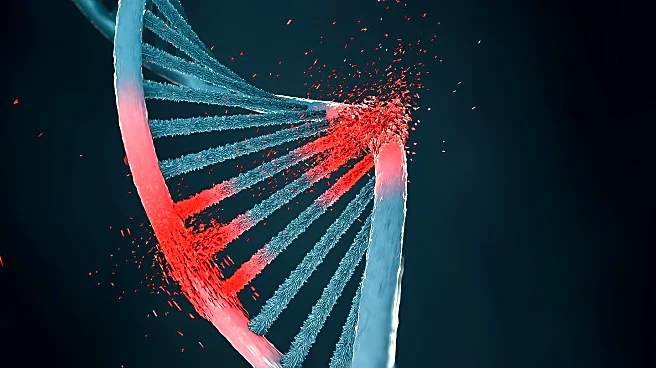What's Happening?
A study published in Nature explores how tissue injury leads to the accumulation of somatic mitochondrial DNA (mtDNA) mutations, impacting energy metabolism and tissue resilience. The research focused on acute kidney injury (AKI) and found that mtDNA mutations impair mitochondrial function, particularly ATP generation. Mice with mutant mtDNA polymerase exhibited regular kidney function under normal conditions but were more susceptible to AKI when exposed to chronic stress. The study provides insights into the role of mtDNA mutations in disease processes and highlights potential therapeutic targets for improving tissue resilience.
Why It's Important?
The findings offer a deeper understanding of how mtDNA mutations contribute to disease progression and tissue vulnerability following injury. By identifying the impact of these mutations on energy metabolism, researchers can develop strategies to enhance tissue resilience and prevent further damage. This could lead to improved treatments for conditions like AKI and other diseases associated with mitochondrial dysfunction. The study also emphasizes the importance of targeting mtDNA mutations in therapeutic interventions, potentially leading to more effective management of mitochondrial diseases.
What's Next?
Further research is needed to explore the therapeutic potential of targeting mtDNA mutations in disease management. Studies may focus on developing interventions that enhance mitochondrial function and energy metabolism in affected tissues. The findings could also prompt investigations into other conditions associated with mtDNA mutations, expanding the understanding of their role in disease processes. Additionally, the research may influence the development of new diagnostic tools and treatment strategies for mitochondrial diseases.









